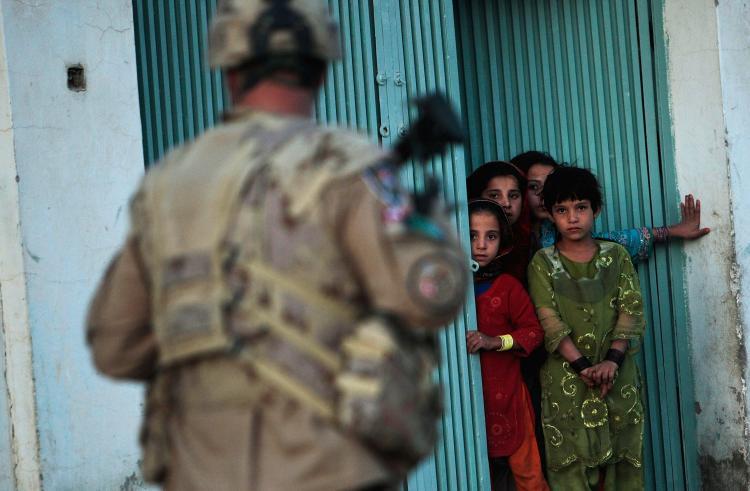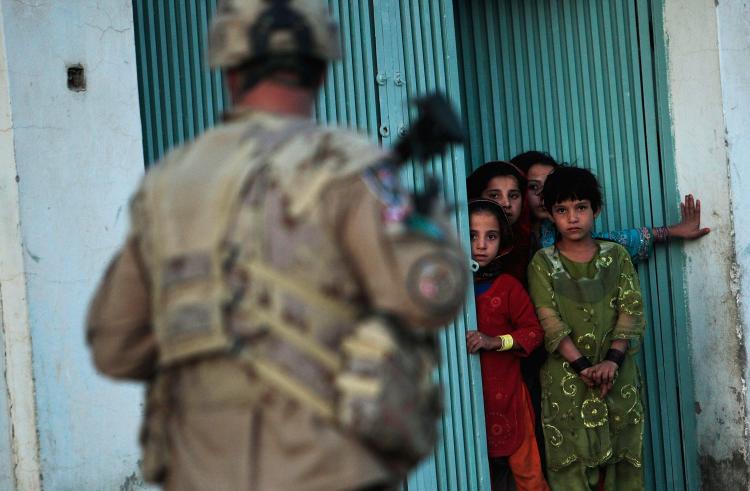A brain injury that has become a trademark of the wars in Afghanistan and Iraq has been experienced by dozens of Canadian soldiers, says a new military report.
Prepared for the military’s surgeon general, the report shows that 6.4 per cent of the 1,817 soldiers surveyed between January and May 2009 said they experienced a concussion while deployed, according the The Canadian Press.
The concussions are linked to the high rate of exposure to improvised explosive devices—roadside bombs—that can jolt the brain and result in long-term health problems.
“The numbers are not surprising for me—the IEDs do occur, people are exposed and there are lot of near misses,” Lt.-Col. Rakesh Jetly, a psychiatrist with the Forces’ Directorate of Mental Health, told CP.
“I think the numbers are quite reasonable.”
Tracking the injury for the first time, the Forces found the majority of the injuries to be mild, with most recovering within days or weeks. Four reported losing consciousness for over 20 minutes.
Those who reported a mild traumatic brain injury (MTBI) attributed it to a blast exposure, while others blamed it on a fragment wound, a fall, a motor vehicle accident, or a bullet.
About nine percent of the group said they suffered from three or more symptoms, such as headaches, irritability, and depression, some of which lasted well after returning home, according to CP.
However, Jetly points out that symptoms that occur after traumatic events could indicate not only a brain injury but mental health problems as well.
“The real difficult thing is to tease out the actual proportion of symptoms that are solely attributable to the shaken brain versus the psychiatric aspects,” he said.
“Where we’re facing the real challenge is if someone six months later is complaining of symptoms like difficulty sleeping, irritability or headaches, how can we with certainty attribute that to the head injury?”
Jetly explains that a soldier exposed to a roadside bomb who later complains of headaches, fatigue, sleeplessness, or anxiety might assume he had a brain injury when it could actually be a mental health condition such as post-traumatic stress disorder (PTSD).
According to a 2008 study in the New England Journal of Medicine, “one must use caution when attributing health problems to mild traumatic brain injury, because associated PTSD and depression may be the primary problem.”
Differentiating between the two is necessary in order for doctors and researchers to provide the right treatments.
Figures obtained in 2008 by the Canadian Press showed that of 1,300 Canadian Forces members who served in Afghanistan since 2005, 28 per cent had symptoms suggesting one or more mental health problems.
Of those, just over six per cent were possibly suffering from PTSD and another five per cent showed symptoms of major depression. The numbers are based on post-deployment screening.
The military screens soldiers after they’ve been exposed to a blast, and after returning home they’re checked for memory and concentration problems.
The military report found that 84 percent of Forces’ members who reported “post-concussive symptoms” did not actually suffer a concussion.
A U.S. Department of Defence study showed that 140,000 U.S. soldiers (about seven percent) deployed to Iraq and Afghanistan have been diagnosed with traumatic brain injury between 2001 and October 2009.
Prepared for the military’s surgeon general, the report shows that 6.4 per cent of the 1,817 soldiers surveyed between January and May 2009 said they experienced a concussion while deployed, according the The Canadian Press.
The concussions are linked to the high rate of exposure to improvised explosive devices—roadside bombs—that can jolt the brain and result in long-term health problems.
“The numbers are not surprising for me—the IEDs do occur, people are exposed and there are lot of near misses,” Lt.-Col. Rakesh Jetly, a psychiatrist with the Forces’ Directorate of Mental Health, told CP.
“I think the numbers are quite reasonable.”
Tracking the injury for the first time, the Forces found the majority of the injuries to be mild, with most recovering within days or weeks. Four reported losing consciousness for over 20 minutes.
Those who reported a mild traumatic brain injury (MTBI) attributed it to a blast exposure, while others blamed it on a fragment wound, a fall, a motor vehicle accident, or a bullet.
About nine percent of the group said they suffered from three or more symptoms, such as headaches, irritability, and depression, some of which lasted well after returning home, according to CP.
However, Jetly points out that symptoms that occur after traumatic events could indicate not only a brain injury but mental health problems as well.
“The real difficult thing is to tease out the actual proportion of symptoms that are solely attributable to the shaken brain versus the psychiatric aspects,” he said.
“Where we’re facing the real challenge is if someone six months later is complaining of symptoms like difficulty sleeping, irritability or headaches, how can we with certainty attribute that to the head injury?”
Jetly explains that a soldier exposed to a roadside bomb who later complains of headaches, fatigue, sleeplessness, or anxiety might assume he had a brain injury when it could actually be a mental health condition such as post-traumatic stress disorder (PTSD).
According to a 2008 study in the New England Journal of Medicine, “one must use caution when attributing health problems to mild traumatic brain injury, because associated PTSD and depression may be the primary problem.”
Differentiating between the two is necessary in order for doctors and researchers to provide the right treatments.
Figures obtained in 2008 by the Canadian Press showed that of 1,300 Canadian Forces members who served in Afghanistan since 2005, 28 per cent had symptoms suggesting one or more mental health problems.
Of those, just over six per cent were possibly suffering from PTSD and another five per cent showed symptoms of major depression. The numbers are based on post-deployment screening.
The military screens soldiers after they’ve been exposed to a blast, and after returning home they’re checked for memory and concentration problems.
The military report found that 84 percent of Forces’ members who reported “post-concussive symptoms” did not actually suffer a concussion.
A U.S. Department of Defence study showed that 140,000 U.S. soldiers (about seven percent) deployed to Iraq and Afghanistan have been diagnosed with traumatic brain injury between 2001 and October 2009.





